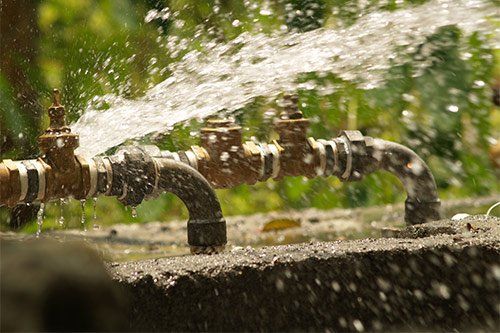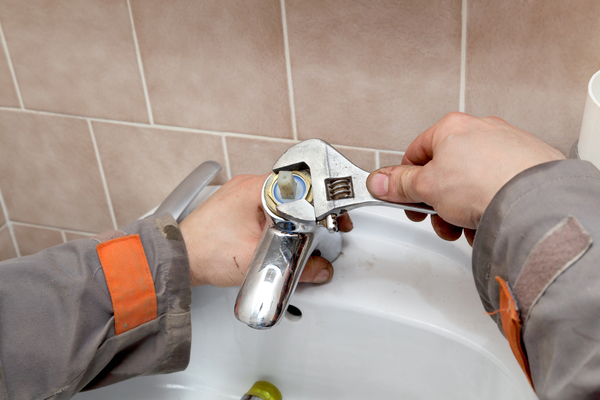The 5 Regular Water Leak Causes
The 5 Regular Water Leak Causes
Blog Article
The writer is making a few great pointers related to How to Find and Prevent Water Leaks in Your Home in general in the article down below.

"Beware of little expenses. A little leak will sink a terrific ship." - Benjamin Franklin.
He couldn't have actually been a lot more right since water leaks in our residences lead to a waste of resources, increasing our water costs. Although this boost might seem minimal initially, it can lead to substantial costs that can damage your bank. In addition to a boost in bills, water leaks additionally trigger unwanted organic growth, architectural damage, and even electric risks.
Determining if you have a water leakage isn't always easy as a result of being not able to see most of the pipework in your home. If you have had a rise in your water costs lately, saw water spots on wall surfaces and ceilings, smelt lousy odor, etc. You could intend to think about requesting plumbing solutions to get it took a look at.
There are numerous sources of water leakages, and we have assembled the usual factors below. Check to see if you have had related problems in your house just recently.
Blocked drains pipes
Food bits, dust, and grease can cause clogged drains as well as obstruct the flow of water in and out of your sink. Boosted pressure within the rain gutters can cause an overflow and end up cracking or breaking pipelines if undealt with. To stay clear of blocked drains in your home, we suggest you to prevent pouring fragments away and also routine cleaning of sinks.
High water pressure
You observed your home water pressure is greater than usual however then, why should you care? It runs out your control.
It would be best if you cared since your typical water pressure should be 60 Psi (per square inch) and also although your house's plumbing system is created to withstand 80 Psi. A boost in water stress can place a strain on your home pipes and lead to cracks, or even worse, burst pipelines. Obtain in touch with a specialist concerning controling it if you ever notice that your home water stress is higher than normal.
Rust
As your pipework gets older, it gets weaker and also a lot more at risk to corrosion after the constant flow of water with them, which can eat away at pipelines and create splits. A noticeable indication of corrosion in your home plumbing system is staining and also although this might be tough to find because of the majority of pipelines hidden away. Once they are old to guarantee an audio plumbing system, we suggest doing a frequent checkup every couple of years and also change pipes
Deteriorated pipeline joints
Pipeline joints are the parts of our plumbing system where the pipelines connect. It is vital to note that even though pipes are created to withstand pressure as well as last for a while, they weren't made to last forever; as a result, they would deteriorate over time. A typical indicator of damaged pipe joints is extreme sound from taps.
Damaged seals
Another cause of water leakages in houses is broken seals of house devices that use water, e.g., a dishwasher. When such appliances are mounted, seals are installed around water adapters for very easy flow of water through the equipment. A damaged seal can cause leakage of water when in usage.
With little or no expertise of plumbing, recognizing your residence's plumbing system adequate to deal with some of these issues (without consequence) can be a hassle. Connect with plumbing specialists in Pittsburgh, Divine Superintendence, Rochester, and also environ today, and also they'll make those concerns disappear.
He couldn't have been more right due to the fact that water leakages in our residences result in a waste of sources, enhancing our water costs. If you have had a boost in your water costs recently, noticed water discolorations on ceilings as well as walls, smelt lousy odor, and so on. A rise in water pressure can place a stress on your home pipelines as well as lead to cracks, or even worse, ruptured pipelines. One more cause of water leaks in residences is damaged seals of residence devices that use water, e.g., a dishwasher. When such appliances are set up, seals are mounted around water adapters for simple flow of water with the device.
5 TIPS IN DETECTING A WATER LEAK IN YOUR HOUSE
Water leaks can be hard to find in your home, yet they can be so common. We rely on water every day in our home, which is why a leak can cause big problems. By detecting them early, you can save money and further damage, getting the problem fixed as soon as possible. Here are 5 tips to help you detect a water leak in your home, so you can contact a plumber straight away and get the issue sorted.
Check your water meter
Many people underestimate the value of the water meter in their home. It can be one of the best ways to tell if you have a leak early on, so you can get on top of it before issues start arising. Start by turning off all the water in your home: taps, washing machine, dishwasher, etc. Now take a look at the meter – if it’s still changing with everything turned off, it’s likely you have a fast-flowing leak that you need to get on top of straight away. If nothing changes, then leave your meter for an hour or two and come back to it. Did it change in this time? It’s likely you have a slower leak, which isn’t as urgent but still handy to get fixed so it doesn’t become a bigger problem.
Keep an eye on your bill
Another good way to detect a leak in your home is by keeping an eye on your water bill. It helps if you have a past bill from the same period of time. You can compare like for like and determine whether your water usage has increased significantly. If it has, there may be a leak in your system that you haven’t picked up before. A professional plumber can check through all of your pipes and determine where it is coming from.
Look for damage
If you have a leak inside your home, you will notice damage over time. Take a look at your showers and bathtubs and note whether any of the tiles surrounding the area seem to be discoloured or damaged in any way. There may be water stains, mould or peeling material that has resulted from a build up of moisture over time. Make sure you take a look under sinks at the back of cupboards that don’t get accessed regularly. This is where damage can go unnoticed and build up over periods of time.

I am just very focused on Where to Find Water Leaks and I hope you liked the entire piece. Sharing is good. You never know, you will be doing someone a favor. Thanks a lot for going through it.
Fast relief, just a call. Report this page